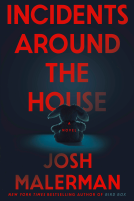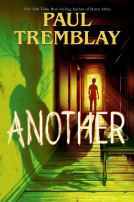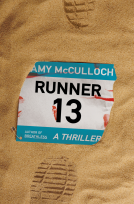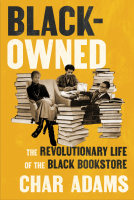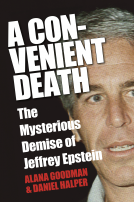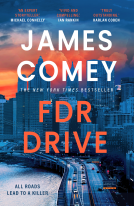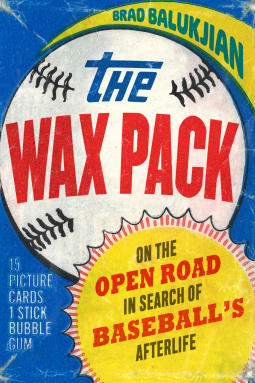
The Wax Pack
On the Open Road in Search of Baseball's Afterlife
by Brad Balukjian
This title was previously available on NetGalley and is now archived.
Send NetGalley books directly to your Kindle or Kindle app
1
To read on a Kindle or Kindle app, please add kindle@netgalley.com as an approved email address to receive files in your Amazon account. Click here for step-by-step instructions.
2
Also find your Kindle email address within your Amazon account, and enter it here.
Pub Date Apr 01 2020 | Archive Date Apr 30 2020
Talking about this book? Use #TheWaxPack #NetGalley. More hashtag tips!
Description
A 2020 NPR Best Book of the Year
Is there life after baseball? Starting from this simple question, The Wax Pack ends up with something much bigger and unexpected—a meditation on the loss of innocence and the gift of impermanence, for both Brad Balukjian and the former ballplayers he tracked down. To get a truly random sample of players, Balukjian followed this wildly absurd but fun-as-hell premise: he took a single pack of baseball cards from 1986 (the first year he collected cards), opened it, chewed the nearly thirty-year-old gum inside, gagged, and then embarked on a quest to find all the players in the pack.
On Balukjian’s trip in the summer of 2015, he spanned 11,341 miles through thirty states in forty-eight days. Actively engaging with his subjects, he took a hitting lesson from Rance Mulliniks, watched kung fu movies with Garry Templeton, and went to the zoo with Don Carman. In the process of finding all the players but one, he discovered an astonishing range of experiences and untold stories in their post-baseball lives. While crisscrossing the country, Balukjian retraced his own past, reconnecting with lost loves and coming to terms with his lifelong battle with obsessive-compulsive disorder.
Alternately elegiac and uplifting, The Wax Pack is part baseball nostalgia, part road trip travelogue, and all heart, a reminder that greatness is not found in the stats on the backs of baseball cards but in the personal stories of the men on the front of them.
Advance Praise
“A wonderful journey that opens into an exploration of sports, nostalgia, American culture, and memory, The Wax Pack will surprise and engage you. It’s a delight to read and a tribute to the power of curiosity.”—Susan Orlean, author of The Orchid Thief and The Library Book
“Poignant and powerful. . . . Balukjian covers more than ten thousand miles to track down the stories of fourteen men from a single pack of 1986 Topps baseball cards, learning a lot about their lives—and his own. Hop in the backseat and join him for the journey.”—Tyler Kepner, national baseball writer for the New York Times and best-selling author of K: A History of Baseball in Ten Pitches
“As pleasing as the pink slab of bubble gum that, long ago, came with baseball cards inside five cent packets, this slender volume gives fresh flavor to the familiar phrase ‘inside baseball.’”—George F. Will
“What if a pack of baseball cards could come to life? It sounds like a Spielberg movie plot, except it happened. It happened because Brad Balukjian made it happen, in real life, with the most eclectic cast of baseball characters ever assembled. And the result is one of the most fun, honest, funny, human, and uniquely creative baseball books of the year. I’ll admit it. I loved The Wax Pack!”—Jayson Stark, senior baseball writer for The Athletic
“What a weird, quirky, fun read. There have been 50,000 books written on Major League Baseball, but Brad Balukjian’s The Wax Pack is a uniquely romantic love letter to a game, a time period, and its random soldiers. Well done.”—Jeff Pearlman, author of Football for a Buck
“The Wax Pack is the perfect synthesis of what makes baseball (and baseball cards) compelling, combining the thrill of discovery, the reassurance of shared memory, and poignant metaphors for life. Balukjian’s cross-country, cardboard-based bildungsroman reminds us that baseball’s best stories are sometimes told by and about players who’ve long since left the league.”—Ben Lindbergh, bestselling author of The MVP Machine and The Only Rule Is It Has to Work
“Brad Balukjian’s book is for all those little kids with cardboard heroes who turned into big kids and started wondering, ‘Hey, what if there’s more to life than just the cardboard?’ Turns out, there is.”—Rob Neyer, author of Power Ball: Anatomy of a Modern Baseball Game
“A journey of self-discovery by way of a pack of 1986 baseball cards. In Brad’s emotional quest, he not only finds answers but shares a snapshot of ballplayers who, like him, are trying to make it through life’s many twists and turns.”—Shane Rawley, former MLB pitcher
“Brad Balukjian’s The Wax Pack swiftly and joyfully unfolds like a baseball-loving version of Almost Famous. Bursting with life, laughter, and heartbreak, it’s an absolutely essential work of baseball literature; a rollicking page-turner; and a deep, rewarding search for wisdom.”—Josh Wilker, author of Cardboard Gods
“Every pack of baseball cards is like a birthday gift. It’s carefully wrapped, and, though what’s inside is a mystery, you know it’s going to be great. Same with The Wax Pack, the book. Until you open it, you have no idea how good the contents are. They’re good, very good. I’ve opened thousands and thousands of packs in my lifetime, but this is one of my favorites.”—Jeff Katz, author of Split Season 1981: Fernandomania, the Bronx Zoo, and the Strike that Saved Baseball
“With The Wax Pack Brad Balukjian takes the simplest of ideas—opening an old pack of baseball cards—and twists it into knots, wringing every ounce of goodness from a familiar activity. With clarity of purpose and depth of prose he tells an endearing tale, deftly melding fan with player to provide a joyous, entertaining look at a sport he clearly loves.”—Jason Turbow, author of They Bled Blue and The Baseball Codes
“Collecting baseball cards is something of a childhood rite of passage, and The Wax Pack is an awesome look into something many of us would never have dreamed of doing—chasing down our childhood heroes. . . . Brad tells their stories unlike anyone has ever done before—from the unique perspective of author and fan.”—Matt Boyd, MLB pitcher, Detroit Tigers
“The Wax Pack is a fun read for card collectors, fans of ’80s baseball, or anyone who just wants to know what Rance Mulliniks is up to. I want to buy an old pack of cards and do what Brad Balukjian did!”—Eric Stangel, Emmy Award–winning writer and producer for the Late Show with David Letterman
Available Editions
| EDITION | Other Format |
| ISBN | 9781496218742 |
| PRICE | $29.95 (USD) |
| PAGES | 264 |
Featured Reviews
 Greville W, Reviewer
Greville W, Reviewer
Most sports book you read have something in common or retrace common themes but every so often you find something totally original and the premise of The Wax Pack certainly is something that I doubt has ever been written about before.
Take a random box of bubblegum from the mid 80s - a time when the author collected the baseball cards within and retrace the lives of the 14 players featured.
This the author does and commences a wonderful nostalgic voyage of discovery both for the players who have long since left the spotlight in which they once shone but more importantly for Brad Balukjian himself who faces the demons and lost opportunities and tries also to come to terms with his OCD.
The book is reaffirming, at times full of hope and optimism but at others deeply painful and hard to read.
What also made it hard to read was that this was ARC Kindle download where almost every page was riddled with typos and missing letters and words.
Sometimes I was guessing what was on the page but I could certainly decipher the gist of what this talented writer intended his readers to digest.
This was certainly far more palatable than the 30 year old bubblegum that he struggled to masticate before he left on this powerful and magical voyage of discovery.
 Phil B, Educator
Phil B, Educator
This is a fun, nostalgic book about one man's attempt to visit and interview all of the baseball players that came out of a tops baseball card pack from the 1980's. What a great idea for a book. I loved the interviews with the various players. The only thing I didn't enjoy about the book was the over-emphasis on the author's personal life as he traveled from place to place to conduct the interviews. At times I felt lost in these details.
Overall a great book- I would love a second installment. It would be fun to see the author do some Fleer cards or Donruss.
 Kyle E, Reviewer
Kyle E, Reviewer
The inventive premise used by the author created a fun and nostalgic read about an era of baseball that seems to be overlooked. The majority of the players involved with this book are not household names, but that is the beauty of this book. The reader is able to learn about the life of a baseball player both during their playing career and their life after the game. The spirit of each player comes through effectively and the narrative flows seamlessly from player to player.
The concept of this book sounds very simple, yet it is one that is unique among sports books which are available. The author, Brad Balukjian, opens a pack of 1986 Topps baseball cards nearly 30 years after it was purchased (the book takes place in 2015) and sets out on a road trip to learn what each of the 14 players in the pack have done in their lives since the cards were issued. What follows is an amazing journey that the reader will enjoy while riding along with the author while he sets out to meet these players he calls the “Wax Pack.”
The fame and skills of the players range from a Hall of Fame player (Carlton Fisk) to those with very short and non-descript careers (Jamie Cocanower), from the very famous (Dwight Gooden) to the virtually forgotten (Al Cowens). Balukjian tells a story about each player, whether he actually talks to that man or not, that usually has little to do with baseball and more to do with what has happened to each man after baseball. These can range from very uplifting and inspiring, as was the case for this reviewer when reading about Gary Templeton’s story, to very poignant and heartbreaking, such as Cocanower’s revelation about his wife’s diagnosis of cancer and the tragedy that befell the family of Randy Ready. Some men still sound angry, such as Vince Coleman, while some are still very happy with what the game provided them, such as Rick Sutcliffe.
The most entertaining stories are two in which he did not speak to the player for an interview, but it wasn’t for the lack of trying. In one, Balukjian ended up attending a Houston Astros game and was close to meeting Gary Petis, who was working as the third base coach of the Astros at the time. How he ended up at the game makes for an entertaining story, as does Balukjian’s adventure of trying to connect with Fisk. There are actually two chapters on this as after failing to connect with Fisk at his home, Balukjian drives out to Cooperstown for the 2015 Hall of Fame induction weekend and spends $60 for the chance to meet Fisk for about 30 seconds while Fisk signed his card. What Balukjian does in that very quick encounter was probably the funniest story in the entire book – but alas, it did not get the desired result as Fisk still does not provide that story for the author.
The author’s own personal story, however, is also intertwined throughout his road trip and it adds special meaning to his meetings with the former baseball players. He describes his relationship with his parents throughout the book, leading up to a “Field of Dreams”-esque meeting with his father. He also makes a side trip to visit an old girlfriend, the only one that he mentions in the book but a woman for whom he still believes was the best one he had. Both of these stories will make the reader have the same gamut of emotions that his meetings with the players evoked.
One last item that should be mentioned about the book – it begins and ends with descriptions of how the cards and bubble gum are packaged, complete with a short story of an employee who works in the factory that packages the cards. Anyone who has tasted the bubble gum – a term used loosely to describe that hard stick – can relate to Balukjian’s torture when he consumed the gum.
Those baseball fans who had in their possession baseball cards at one time or another will certainly want to read this book, but one does not have to be a baseball fan to thoroughly enjoy this book that is not only thought-provoking but also emotion-provoking as the reader will fell a large range of emotions while reading it.
I wish to thank University of Nebraska Press for providing a copy of the book via NetGalley in exchange for an honest review.
The Wax Pack: On the Open Road in Search of Baseball's Afterlife by Brad Balukjian was an interesting baseball retrospective told in the most unique way. The author collected baseball cards as a kid during the peak of card collecting in the late 80s/early 90s. I'm married to a childhood baseball card collector (who has also rekindled his love), so this is a connection that was familiar to me. In the story, the author decides to take a random pack of baseball cards and see whatever became of the players on the cards that are inside. What follows is a truly unique cross-country adventure. Some of these men are easier to track down than others, and there is a variance who is willing to talk. With each man, he walks through the statistics and related career highlights. However, his quest isn't about the numbers, rather he is seeking to find out who these men are as humans. He wants to know who they were when they played, but more than that, he wants to know about the life they found after their playing days were over. This was a fascinating read as each card/player was so different. The author often found himself going to places the player loved, and it was so neat to see these men in their true element. Not only that, it was interesting to see how the author also saw connections in his own life, and he did his own self-work as he traveled. If you are like my husband and the author and baseball cards bring back a certain nostalgia for you, this is a book that will totally put you in your throwback feels. If you're just a fan of the game like me, you'll also probably dig this one. This is just such a wonderful collection of stories about humans who happened to be really great at baseball for awhile.
The premise of this book is unique and therefore perfect for it to stand out in a sea of sports journalism. People look up to ball papers but sometimes how they deal with life away from the spotlight can be more heroic.
I have a passing interest in baseball and wasn’t familiar with most of the players from the pack but that wasn’t a stumbling block due to enthusiasm of the author. Balukjian has an engaging style and a genuine interest in the backgrounds of the players and how it has affected their lives.
I found the section on the history of the cards & the Topps factory to be interesting and I loved the cover design to compliment the contents.
1986 was the year that I discovered baseball, so the premise of The Wax Pack immediately appealed. Brad Balukjian buys a pack of baseball cards from 1986, sealed in the old style wax wrapper, cracks it open and begins a journey to track down the random mix of major leaguers that he finds inside. One of them is a Met, the World Series winning team that I watched on Channel 4, a then still relatively new TV channel that had made a name for itself by broadcasting “minority sports”.
The author’s aim is to find out what happened after baseball. He has a pack of cards that cover unspectacular journeymen to Hall of Famers and he wants to find out what they did next, how they coped with the end of a career that is inevitably short. Again, it is a premise that appeals to me, it smacks a little of The Boys of Summer but less formal and more free form, because my relationship with baseball is not so simple as a love of the game, in fact for large periods the game itself has been mostly absent.
I have always been a fan of baseball stories as much as, to be honest more than, the actual three hours or so of gameplay. I quickly fell for Gary Carter, Daryl Strawberry and Doc Gooden as they won the World Series, but I also idolised Roy Hobbs, Crash Davis and Ricky Vaughn from the big screen and revelled in the stories of Shoeless Joe Jackson, Satchel Paige, Willie Mays and Tinker to Evers to Chance. In The Wax Pack Brad Balukjian has added to those stories, added to a fascination that has never left me despite living over three thousand miles from my nearest MLB stadium.
When writing a road trip book there has to be a balance to the narrative. Long hours are spent journeying (especially when driving around a country as vast as the USA), relatively fewer focus on the purpose of the journey, in this case 13 somewhat random baseball players, and the author’s personal story also inevitably bleeds into the account as it intersects with the interviews. Balukjian manages this well, revealing enough of himself to be engaging but without distracting from the main participants.
He also homes in on the individual stories, not being trapped by the mundane questioning of modern media savvy sports stars, but digging underneath to the real people and their authentic struggles. It is a fascinating insight into the human endeavour and the openness and honesty of the retired players is at times startling. This is a real tribute to the author who shows a genuine compassion for his subjects whilst continuing to pursue the difficult topics, the impacts of parents, both absent and present, the predictable temptations of being a ball player and the difficulty with coping both with the pressure of the game and the absence of it.
The only very slight niggle is when the author, maybe buoyed by the openness of some of his other interviewees, is a touch harsh on Carlton Fisk, the Hall of Famer, who didn’t feel so strong a need to join in his project. It is the one moment when his humility drops a little and a touch of petulance sneaks in, but I suppose when your self-funding stretches to a hefty fee for a few seconds at a signing event rejection can sting.
It certainly doesn’t detract from what is a thoroughly entertaining and insightful read though and I’m sure The Wax Pack will appeal to all baseball fans.
 April A. T, Reviewer
April A. T, Reviewer
When I reflect on my childhood, I find very few things that can compare to the thrill I experienced while opening each new wax pack of baseball cards. Between the chalky gum, the stats I would pour over, and the excitement of finding a card for one of my beloved Detroit Tigers, buying and opening wax packs was one of life's greatest pleasures.
I don't collect baseball cards anymore, but I do still enjoy watching the sport. This book took me down a nostalgia filled road trip (literally, as I read about the writer's travels, and figuratively, as old memories of favorite cards and highlight reel worthy baseball moments filled my head). I loved the overall concept and execution of this book, and I can't possibly recommend it highly enough for fellow baseball fans and old school wax pack collectors.
 Librarian 368077
Librarian 368077
Balukjian's premise (opening a pack of 1986 baseball cards and then tracking down all of the players) is clever in its simplicity, but an ultimately fascinating look at reality versus perception, especially when the latter is weighted with nostalgia. After all, the former players are just people, granted, people gifted with specific extraordinary talent, but people who have lived most of their lives outside the context of that talent. Definite recommendation for baseball fans, especially fans familiar with the players covered.
My only criticism is that the author shared too much intimate information. While a personal connection tot he writer is necessary to the story, as it is in any quest, some of the more personal details felt out of place.
I love the cover of The Wax Pack. Definitely brings back memories of opening up baseball cards and chewing that horrible gum. Brad opens a pack of 1986 Topps baseball cards and takes us on his road trips to learn what each of the players in the pack have done in their lives since the cards were printed .Brad's interviews and writing style are interesting and fun to read. We'll be buying a copy for our library.
 Bookseller 602125
Bookseller 602125
First of all, I’m definitely the ideal audience for Wax Packs. I am a diehard baseball fan who collected thousands of cards in the ‘80s, and 1986 was the year I graduated from high school. I remember watching all of these players, and I was curious to learn about their lives after the majors. I really enjoyed tagging along for the cross country adventure. But I could never quite figure out what the main thread was. Was it a road trip or a nostalgia trip? Was he more interested in where they came from or what came after baseball?
I was hoping to hear more about how the Wax Packers viewed the game in retrospect. I wanted to know more about why some walked away, some stayed close to the game, and for others it was complicated. Would do they do anything differently? Do they appreciate the game today? I don’t expect them to be fans, but I liked it when their opinions were expressed. I wanted to know less about the author’s romantic dalliances. Much less.
Since I feel like it is fans near my age and level of enthusiasm for the game who are the market for the book, I wish it had delved more deeply into their stories. Too often a brief anecdote led to some sweeping conclusion. “Jaime Cocanower was too smart, too timid, too nice for baseball.” “Randy is not afraid. All his life he’s been dealt a five of clubs…” I would have liked to have had a thicker description that showed this more than declarative statements that seem to stretch beyond what the reader has actually seen. The author talked about the “unexpected thrills” of watching kung fu with Templeton and playing Cards against Humanity with Cocanower, but I wanted to hear more about those experiences as they unfolded rather than characterizations.
I was grateful for the epilogue, because more than once I felt like the trip was already long enough ago that I wondered how much might be out of date. And while the focus of the writing confused me sometimes, it could also be delightful, e.g. the Oakland Coliseum as “postapocalyptic crated ringed with hot dog stands.”
All in all, it was like stumbling on a family reunion you didn’t know was happening, with a cast of characters both familiar and distant. A little weird to see who showed up here, but still glad to have made the trip.
 Budd B, Media/Journalist
Budd B, Media/Journalist
"The Wax Pack" starts with an interesting concept from an unusual baseball author.
Brad Balukjian doesn't have the standard biography. He has a Ph.D. in entomology from the University of California at Berkeley, and currently teaches biology at Merritt College in Oakland, California.
Balukjian admits he's always been a bit of a nerd, probably in part because he's been diagnosed with OCD. He's been a baseball fan for much of his life, and had the thought of seeing what some of his childhood heroes are like now.
Here's the concept - he bought an unopened pack of baseball cards from 1986, opened them up, and tried to figure out a way to meet everyone in that particular pack. Balukjian admits he actually bought a few different selections and picked one, if only so that most of the guys on the cards were still alive about 30 years later.
The 15 cards became 14 players, thanks to the inclusion of a checklist. Balukjian hopped in his car and drove across the country and back to chase them down. The list included everyone from Carlton Fisk to Jamie Cocanower, which you must admit covers a wide range of talents and careers. Al Cowens was the only one of the 14 who has passed away, and Balukjian checks in with a family member and a gravesite there. The author also looks up his favorite player of all time, Don Carman, as well as an old girlfriend and his father along the way as well. When you can see middle age, as Balukjian was at the time this was researched, you start feeling a little more nostalgic.
Balukjian takes a different approach than most journalists would use. He's more interested in the roots of the players and how they are handling life after retirement from playing than the details of their careers themselves. At the front end, he discovers several who came from divorced families, perhaps showing that athletics can be a refuge for the kids in such situations. There was still plenty of games of catch along the way between fathers and sons, though. At the other end, a good-sized number stayed close to the game.
Balukjian makes a a not unexpected but interesting discovery along the way - the level of cooperation to the idea is more or less inverse to the level of stardom that the player obtained. In other words, Cocanower couldn't have been nicer, inviting the writer to the house for a July 4 picnic. Meanwhile, Fisk was totally uncooperative, and Balukjian ended up getting into something of a shouting match with Fisk's agent over the phone. Rick Sutcliffe, a former Cy Young Award winner and television analyst, scores points as the most down to earth of the bigger names of the 14. Good for him. Vince Coleman never was located and Gary Pettis wasn't allowed to do interviews in his role as a coach for the Astros. No one said meeting everyone in the pack was going to be easy.
With that covered, the key question remains: Does it work? That may depend on your viewpoint, Mr. or Ms. Reader.
It's interesting to read about the players who were willing to sit down and talk at length about their lives. They all have a story to tell, partly because they are exceptional simply to play in the major leagues (and, of course, be on the front of a baseball card). But at times this has something of a "What I did on my summer vacation" feel to it. It's more of a journal of the trip, and the personal side of it gives this a less-than-traditional tone.
The early reviews of this book have been rather glowing. Even George Will was willing to supply some happy words for the sake of publicity. I'm not quite ready to go that far. The book held my interest, but I'm not sure I'll remember much beyond the idea for any length of time - well, except about Fisk's prickly personality.
You might find Balukjian better reading company for a long trip like this than I did. Therefore, by all means feel free to take a look at "The Wax Pack." If you like the concept, you'll be willing to go for the full ride.
 Mike C, Reviewer
Mike C, Reviewer
What a fantastic idea for a book. This brings back memories of opening the wax packs when I was a kid, knowing all the players, and everything (according to the card) about them. Fun following up with all of these guys year later, and a great road trip story as well
 Robert E. W, Reviewer
Robert E. W, Reviewer
The Wax Pack: On the Open Road in Search of Baseball’s Afterlife. By Brad Balukjian. Lincoln, NB: University of Nebraska Press, 2020. 280 pages.
The Wax Pack is a high-concept book for baseball fans. In 2015, Brad Balukjian, a natural history professor at Merritt College in Oakland, he bought a random unopened package of 1986 Topps baseball cards on eBay and spent his summer trying to track down the 14* players lying underneath the bubblegum. In 49 days, Balukjian put 11,341 miles on his 2002 Honda and fueled himself with 123 cups of coffee.
Balukjian chose 1986 because it evoked fond childhood memories of enjoying baseball with his father. Twenty-nine years later, the 34-year-old Balukjian was single, renting a room in Oakland, and in therapy for OCD and emotional issues. His coast-to-coast-to coast baseball journey took on a second life of sorting out his own life. His Topps pack included–in the order Balukjian discusses them–Rance Mulliniks, Steve Yeager, Gary Templeton, Gary Pettis, Randy Ready, Don Carman, Jamie Cocanower, Carlton Fisk, Vince Coleman, Lee Mazzilli, Doc Gooden, Richie Hebner, Rick Sutcliffe, and Al Cowens.
Balukjian bookends his sojourn with stories gathered in Duryea, Pennsylvania, where Topps cranked out 170 packs of cards per minute before closing the plant in 1996. Mary Lou Gula missed the steady employment and comradery at Topps, though it was hot, hard work. It’s not easy starting over when you’ve doing something for a long time. Balukjian wanted to learn if that was also true for the faces on the cards.
Getting to the major league usually entails devoting one’s youth to endless hours of playing, practicing, and attending coaching clinics. Those who become prospects spend around four years in the minor leagues, and just one in 33 will make it to the majors. Even then, the average career is less than 6 years; most players retire in their 30s. What one does for the next 30-plus years? What kind of person does one become once the cheering ends?
One revelation is that there is generally a reverse correlation between being a great player and a good human being. Jaime Cocanower, for example, grew up in Panama and lasted just three years in the majors. He now lives in Arizona with his wife, a teacher who works with Asperger kids. Cocanower experienced few problems with walking away.
Professional baseball is notoriously hard on marriages–especially for players from dysfunctional birth families. “Boomer” Yeager was tightlipped about his unhappy childhood, but you don’t need a degree in psychology to imagine how it contributed to two collapsed marriages and struggles with alcohol abuse. Rance Mulliniks also divorced before he finally found peace in not being the center of attention. Most of the players in Balukjian’s wax pack divorced at least once.
Cocanower is an outlier in severing ties to baseball. Rick Sutcliffe had an afterlife in broadcasting, Yeager as a coach for the Dodgers, Gary Pettis with the Astros, Richie Hebner with the Blue Jays, and Lee Mazzilli with both the Mets and Yankees. Balukjian’s boyhood idol, Phillies pitcher Don Carman, became a sports psychologist who works for superagent Scott Boras.
Wax packers Carlton Fisk and Doc Gooden milked their fame while showing little respect for the fans who idolized them. Balukjian observes that Fisk, “never won any nice guy awards.” He comes across as a prima donna and world-class jerk. His agent claims Fisk is a private man, which begs questions of why someone wishing anonymity needs an agent, or why he agrees to act chummy with anyone who pays for an autograph.
The most direct way of describing Gooden is that he is simply bad news. Through his son, he extorted hundreds of dollars from Balukjian for an interview he never intended to give. Gooden is a junkie who has been arrested for everything from DUI and domestic abuse to child endangerment and cocaine possession.
The wild card in the wax pack is Balukjian’s attempt to connect with other black players. Gary Templeton was extremely open about being the “black kid” who refused to “kiss white butt." He accused his former manager Whitey Herzog of living down to his name, and cited racism to explain why the percentage of black major leaguers has fallen from 18 percent in 1976 to just 7.2 percent. Balukjian positions Templeton as a complex and misunderstood man whose pride was never broken.
On the other hand, neither Pettis nor Vice Coleman would speak to Balukjian, moments that provide space for Balukjian to discuss his own demons or speculate about non-present subjects. Often, these breaks are book-within-a-book digressions that weaken the book’s coherence. Plus, should someone in therapy try to psychoanalyze others? Vince Coleman’s run-ins with the law are fair game, but few fans would agree with Balukjian’s assessment that Coleman was “a pretty mediocre player” whose sole attraction was base-stealing. Coleman played for 12 years and was a career .264 hitter. That’s solid, even if not earth-shattering.
The book is much stronger when Balukjian immerses himself in the hometowns of the players. Al Cowens died in 2002, and Balukjian visited Compton and elicited remembrances from community and family members. Especially moving was Balukjian’s trip to Carman’s boyhood home of Camargo, Oklahoma, a dead oil-patch outpost now defined by crystal meth and low aspirations. Carman left it behind, a reminder that professional sports are often a one-way escape from nowhere. Metaphorically speaking, that’s a much longer journey than 49 days crisscrossing America.
Rob Weir
* Normally there are 15 player cards, but one card was a checklist.
 Dav B, Reviewer
Dav B, Reviewer
I really enjoyed this book. Many other reviewers have already presented what the book is about so let me share my review a little differently. I had just finished Cardboard Gods by Josh Wilker which I really enjoyed as well and this book felt a little similar and enough different to keep it interesting and one that I recommend.
You get to learn about 14 random players who were in the 1986 pack of cards that the author opened and seeks out roughly 30 years later via a roadtrip to spend a day with to learn what they are up to and how their life has gone. Also, you get to learn a little bit about the author, and you get to learn a little bit about life.
If you were or are a collector of baseball cards and loved learning about the players in the packs of cards you opened, if you have interest in mid-1980's baseball, if you want to learn more about players life after baseball, or if you really want to settle into reading about an awesome road trip, you will most likely enjoy this book.
At ~280 pages it is a quick, good read!! Go for it!
 Joe K, Reviewer
Joe K, Reviewer
I really enjoyed “The Wax Pack” and the search made by the author for the players in the pack. I thought that he did an excellent job of humanizing the players and showing how baseball may be how we remember them, but they’ve still got a lot of life to live after they stop playing. It was fascinating to see the different paths that each player took to even make it to the major leagues, and how their paths diverged after retiring as well. Again, it served to show the players as complete people as opposed to a collection of statistics on a baseball card. In a way, this was just a baseball centric version of Sports Illustrated’s “Where Are They Now?” yearly feature, but presented in an different and entertaining way. The fact that some of the players weren’t famous and wouldn’t have been on my radar as a fan was a big part of the enjoyment of the book. I did appreciate the author trying to bring himself into the book to make it connect more personally, but I felt those parts often fell flat and seemed to drag the pace of the book. I also wish he had given us more about the Topps factory and the workers there. Maybe that’s a book for another time.
Overall, very enjoyable and recommended for baseball fans.
 Andrew S, Reviewer
Andrew S, Reviewer
Brad Balukjian has delivered the first great baseball title of the new decade with his wonderful book, The Wax Pack: On the Open Road in Search of Baseball's Afterlife.
Balukjian had a simple idea- open a single pack of 1986 Topps baseball cards (the first year he remembers collecting) and track down the players on the cards he finds inside. Having an idea is half of the equation, but he follows through by executing it brilliantly.
Continuing in the spirit of baseball adventures like Joe Posnanski's The Soul of Baseball, we follow Balukjian from his home base in Northern California as he drives east across the United States and then back home again in tracing the path he mapped out to connect with the players he found in his special pack of cards. The pack was a mix of solid major leaguers, stars, and short timers, but there are common threads that run through the journey of each player through childhood to the major leagues and beyond. His journey includes meeting players in public spaces, meeting them at their homes, joining one's family for a holiday celebration, and an interesting encounter with an uncooperative Hall of Famer. Whether the player agreed to meet with Brad or not, he gets the full treatment from early life to present day.
More than just a baseball book, The Wax Pack is an open and honest reflection on the author's own life, with introspection regarding mental health, love & loss, and family dynamics . In the midst of a journey to visit the hometowns and explore the backgrounds of a handful of former major leaguers, he also revisits sites and people important to him personally.
I read a lot of books and a lot of baseball books, and The Wax Pack is instantly one of my favorites. I cannot recommend it highly enough or widely enough. Thanks to NetGalley for providing an advance copy in exchange for an honest review.
 Brendan C, Reviewer
Brendan C, Reviewer
I love books involving people who feel compelled to go on arbitrary adventures. Danny Wallace specialised in this area with his books Yes Man and Join Me amongst others. Last year I really enjoyed Europe United by Matt Walker which involved a quest to visit a soccer match in every UEFA country.
The Wax Pack is Brad Balukjian account of tracking down all of the players whose baseball cards were in a particular pack of 1986 Topps baseball cards some 30 years later. Balukjian travels across the USA to track down the players who range from Hall of Fame players to 10 year journeymen to players who spent only a very short time in the Major Leagues.
Each player gets a chapter as Balukjian managed to spend time with almost all of them. Even where Balukjian doesn’t get to meet the player, he recounts his odyssey to find them One refuses to talk despite Balukjian showing up at the ballpark where he was working as third base coach. The other, Carlton Fisk the most famous player in the The Wax Pack, is in the midst of descending back into addiction.
The Wax Pack becomes a unique and fascinating insight into what happens players when they retire. The random nature of the players he follows ensures an interesting diversity. It also becomes a reflection on father-son relationships as each of the players recounts their own, often troubled, relationships with their fathers and also with their own children.
The book and trip are deeply personal for Balukjian. At times there is definitely some oversharing and unnecessary details about the minutiae of the trip. However there are a couple of very funny stories from Balukjian’s own adolescence which had me laughing out loud. As the trip progresses the book becomes more and more a soul-searching journey for the author. Along the way he meets his ex, reconnects with his father, visits his childhood hero and tries to find love. Ultimately, the book feels more authentic for how personal it is.
I really enjoyed the book which exceed all of my expectations. Balukjian is an interesting character and he has done a great job to get such fascinating insight from the players he meets.
 Janet P, Reviewer
Janet P, Reviewer
This book is a combination of baseball history, travelogue, and memoir. The starting point is simple, Balukjian bought an unopened pack of baseball cards from 1986, the height of his childhood collecting passion. In the summer of 2015, he traveled the country talking to the players on the cards.
The first-person encounters with the players were interesting, but the travelogue and the memoirs while they do serve to hold the book together, just weren't that interesting.
 Edwin H, Reviewer
Edwin H, Reviewer
THE WAX PACK, by Brad Balukjian, is a nostalgic trip to childhood (using a pack of cards) where something as simple as baseball can bring a child so much happiness. Balukjian uses baseball, but really the book is about discovering the inner happiness children discover and hold onto as they mature into adulthood.
Bakuljian uses the pack of 1986 Topps cards as his premise to search for these men who had varying levels of success in baseball. As Balukjian meets these men, he starts to connect to them in different ways. Many of them had to be superfocused on their career and talent in order to succeed which parallels several of the hurdles that Balukjian had to overcome. Relationships varied from strained to idyllic which is similar to Balukjian romantic struggles. Balukjian writes from a very emotionally connected place and while I'm sure his interaction with these men was edited down to the best parts, Balukjian seemed to be infiltered and raw when talking about his own life. Putting all of that deeper stuff aside, the journal log of his escapades in finding (or not finding) these guys is wonderful entertainment. The failures are just as fund to read about as the successes.
A great ride along with a man driven by a purpose, THE WAX PACK reminds the reader that whether you were a baseball nut as a kid or had some other healthy attachment to a activity or TV show or person or whatever, that rekindling that attachment, even just for a little while, can still bring us joy and reminds us what makes us feel good inside.
When I first heard about “The Wax Pack: On the Open Road in Search of Baseball's Afterlife” by Brad Balukjian, my reaction was pure and basic: “God, that’s a f---ing good idea.”
Even after a decade-plus of literary reviews, I can count on one hand the times that I was legitimately envious of the idea behind a book. Not necessarily the best books or the most interesting books, but the ones with an underlying premise that spoke directly to me.
“The Wax Pack” is one of those.
Balukjian, a lifelong baseball fan, undertook a simple, yet deeply fascinating adventure. He bought a pack of Topps baseball cards from 1986, the year he got into collecting. He popped the decades-old gum into his mouth and flipped through the 15 cards, regaling himself with ghosts of seasons past. And then, he packed up his life and embarked on an epic road trip, a cross-country voyage in which he hoped to make contact with the players he found when he peeled the paper from the titular wax pack.
The result is something unexpected, a thoughtful exploration of fandom that also serves as a glimpse of the different directions a faded athlete might go. And in the process of delving into this sports-loving memory hole, Balukjian himself becomes more present, undertaking an effort to look back at his own history.
The names on the list run the gamut. There’s a Hall of Famer (catcher Carlton Fisk) and a handful of notable names (Dwight Gooden, Vince Coleman, Garry Templeton, Rick Sutcliffe), but for the most part, it’s a collection of … guys. Men who were good enough to make the major leagues, but who perhaps weren’t destined to be among the legends of the game. It’s a chance to check in on the post-playing careers of people who bade farewell to the only job they ever wanted, a chance to think about who they were then … and who they are now.
It is a chance, as former Deadspin editor David Roth would say, to Remember Some Guys.
The cards in the pack are as follows: Rance Mulliniks, Steve Yeager, Garry Templeton, Gary Pettis, Randy Ready, Jaime Cocanower, Carlton Fisk, Don Carman, Vince Coleman, Dwight Gooden, Lee Mazzilli, Richie Hebner, Rick Sutcliffe and the late Al Cowens (the fifteenth card was one of the dreaded checklist cards that no one ever wanted and that inevitably appeared in just about every pack you bought).
As you might imagine, my envy regarding this idea raised my expectations; I wanted this wonderful idea to come to fruition. Happily, Balukjian doesn’t disappoint, presenting this blend of baseball and personal history with charm and humor, all of it infused with a love of the game and more than a little well-placed self-deprecation.
Over the course of his weeks-long journey, Balukjian drives across the country, trying to make contact with as many of these players as possible. Some of these efforts were more fruitful than others, leading to experiences bordering on the surreal – hanging out with Yeager at the sandwich shop he owns, getting a hitting lesson from Mulliniks and (my personal favorite) watching kung-fu movies with Templeton. He even got a chance to talk to his childhood hero, pitcher Don Carman – and they went to the zoo, because of course they did.
Other encounters never happened, due to scheduling or other difficulties – Coleman never happened, for instance. Nor did Gooden. Meanwhile, the meet-up with Fisk – such as it was – ultimately took place in an autograph line at Cooperstown’s Hall of Fame Induction Weekend.
But the majority of these men were generous with their time, even as they were varying shades of nonplussed by the whole thing. They were thoughtful with their answers, expressing a degree of honesty regarding their lives both inside the game and in its aftermath. Some stayed connected to baseball, while others moved in different directions, but all spoke with warmth about their time in uniform.
(Note: Balukjian even spent some time with a couple of the folks who worked in the Topps factory during the time when the ’86 packs would have made its way down the line. Specifically, there was one worker who almost certainly handled the very pack that would become the foundation of this book.)
“The Wax Pack” is “On the Road,” only with a lot more baseball and a lot less self-seriousness. It is a story that is two trips in one – a present day road trip, a trip down memory lane – with baseball at its center. In a way, it’s a meditation on time and how we mark its passage, as well as a consideration of why we choose those specific markers.
For what it’s worth, my personal baseball card journey began just a year later than Balukjian’s – I started with the 1987 Topps, with the classic wood grain border. Those early entries led to a several-year stretch where I was obsessed with the hobby before moving on to other interests (though my love of the game stayed strong and remains so to this day). Still, the fascination with cards never fully faded. I even bought a box online a year or so back to take that walk down memory lane myself. And before you ask, the answer is yes – I ate the gum. It was gross.
So yes – I think this is a brilliant idea for a book. And with “The Wax Pack,” Brad Balukijian has realized that idea beautifully. Anyone who has ever had a love affair with baseball cards – or just baseball in general – is going to be simply enraptured by this book, transported to that time when there was no thrill greater than feeling that wax crinkle as a pack was unwrapped, the stack of cardboard within rife with seemingly infinite possibility.
 Reviewer 573286
Reviewer 573286
I miss sports. You miss sports. We all miss sports. Good news, there is a new book to make it better.
The Wax Pack is a new book from author Brad Balukjian. The concept for the book is a fun one. What happens when you open a pack of baseball cards and try to find every player in the pack and where they are now in life. I won't spoil it, but the results are super interesting.
Where this book really shines is when things get tough; both with Balukjian confronting his personal life/past and when some of the baseball players he tries to find dodge him or are unavailable. Both Balukjian's writing and his actions the story are the strongest when things aren't easy for him. The Wax Pack is just an excellent story of sports nostalgia and self discovery.
Final Score 4.75/5 Stars This is just an excellent book; especially now when everyone is missing sports. And yes...he eats the gum in the pack.
 Geoff U, Educator
Geoff U, Educator
A refreshing take on nostalgia, baseball, fathers, children, motivation, and second chapters. In a really interesting conceit, the author opens a pack of 1986 baseball cards and tracks down every player in that pack. I probably opened several hundred packs of 1986 Topps cards, so this hit me right in the childhood feels. It was also interesting to see the themes that emerged across the different players: the importance of fathers (often more bad than good); the difficulty for many of stepping away from the game (what do you do when your life's dream is over in your 30s?); and the wide range of differences in passion and purpose across the former players. The range of players was interesting too, from superstars like Dwight Gooden, to journeymen and lesser stars like Don Carmen, Randy Ready, and Rance Mulliniks. And while it's something of a cliche to think that "stars are just like us," I really enjoyed the ways in which the players were humanized in ways fun (yoga! tinder! cards against humanity!) and not so fun (systematic racism, heart disease, substance abuse, divorce). At it's heart, this book is about how you react to the changes in your life and the life you build for yourself in your second (third, fourth, fifth) act.


